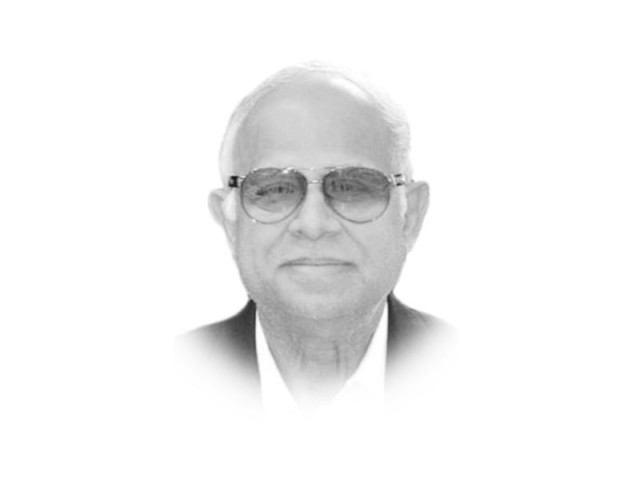Clear and present danger
Martial law can never be better than democracy, the clear and present danger is having no country at all!

The US Constitution empowers only Congress to declare war, Congress also determines whom to wage offensive war against. With that approval, the US President then takes charge in waging that war as commander-in-chief. This has not stopped Presidents from taking the US to war without Congressional approval over a dozen times in the event of danger to the nation; has any President ever been impeached for violating the US Constitution?
Drawn into an ‘Aid to Civil Power’ situation in Islamabad under Article 245 of the Constitution, are the Constitutional parameters about the use of uniformed defence personnel being followed to the letter of the law or was the incumbent government simply using them for their own political ends? Chapter 9 of the Manual of Pakistan Military Law (MPML) is explicit dealing with “Duties in Aid to Civil Power”, military officers have to take written instructions from the magistrate on duty. If the magistrate is absent, the military officer can still act “when the public security is manifestly endangered” and “do as little injury to person and property as may be consistent with dispersing the assembly and arresting and detaining such persons”. The Model Town incident of Lahore defies the rule of law. Without provocation the police acted on someone’s instructions. The Direct Conversation Report (DCR) provided by the intelligence agencies will be troublesome for our ruling elite family, the raison d’etre why the Federal and Punjab governments were trying to block registration of an FIR. His resignation as PM is the least of Mian Nawaz Sharif’s impending problems.
The moral dilemma is whether Constitutional mores will be satisfied in putting down by force in the name of democracy a genuine movement for freedom, democracy and the rule of law? Can the balance between action and inaction be maintained by either obeying orders blindly or allowing the streets to make the law hostage to their demands? Between career and conscience lies an awesome responsibility of obeying the letter of the law, or alternatively one’s conscience in the spirit of the law. What constitutional mores did General Waheed Kakar adopt when he sent both President Ghulam Ishaq Khan and PM Nawaz Sharif home in 1993 and remember Gen Kayani in 2008 making President Zardari back down to restore Chief Justice Iftikhar Chaudhry when Mian Nawaz Sharif accompanied by top constitutional lawyer Aitzaz Ahsan broke the law driving through the police barricades to reach Gujranwala? Was the national interest supreme or Constitutional mores? PM Gilani’s notification restoring the CJ was technically illegal, made legal only a year later post-facto by the beneficiary himself, legally and constitutionally not kosher.
Those who matter should follow the route of pragmatism to avoid complete breakdown of Constitutional authority. In a no-win situation, the Pakistan Army well realises that instead of getting into physical involvement, for the sake of the country its ‘judge and jury’ role is best suited within the parameters of the constitution. Legal opinions differ about whether or not the army can go to the Supreme Court under Article 245 to resolve the political deadlock. Still better than taking over?
If the Supreme Court refuses to listen to the army’s plea on legal grounds and/or fails to resolve the political deadlock, the alternatives would then never be far away. While there is no substitute for democracy, the worst type of democracy is always better than the most benign martial law but if deadlock threatens to lead to bloodshed and compromises the existence of the country, what are the choices? Martial law can never be better than democracy, the clear and present danger is having no country at all!
Published in The Express Tribune, August 28th, 2014.














COMMENTS
Comments are moderated and generally will be posted if they are on-topic and not abusive.
For more information, please see our Comments FAQ